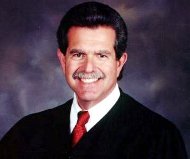Article from: www.thenewspaper.com/news/35/3597.asp
9/27/2011
Florida Appeals Court Strikes Down Loud Car Music Law
Appeals court rules Florida law against booming car stereos violates First Amendment.
 A Florida law prohibiting the blasting of loud music from automobiles violates the first amendment, the Florida Court of Appeals, Fifth District, ruled on September 16. Shannon Montgomery had been driving in Marion County with his tunes "plainly audible" from a distance of twenty-five feet, contrary to the statute. He was pulled over and police eventually discovered he was carrying cocaine and marijuana.
A Florida law prohibiting the blasting of loud music from automobiles violates the first amendment, the Florida Court of Appeals, Fifth District, ruled on September 16. Shannon Montgomery had been driving in Marion County with his tunes "plainly audible" from a distance of twenty-five feet, contrary to the statute. He was pulled over and police eventually discovered he was carrying cocaine and marijuana.
Montgomery moved to suppress the evidence against him, arguing state law used to justify the traffic stop was overly broad and that "plainly audible" is an arbitrary standard. The appellate judges disagreed.
"A vague statute is one that fails to give a person of common intelligence fair and adequate notice of what conduct is prohibited and which, because of its imprecision, may also invite arbitrary and discriminatory enforcement," Chief Judge Richard B. Orfinger wrote for the three-judge panel. "We believe the statute here provides fair notice of the prohibited conduct: it is a violation to operate or amplify the sound inside a vehicle in the state of Florida, so that it is capable of being clearly heard outside of the vehicle at a distance greater than 25 feet. The distance standard provides an explicit guideline to those charged with enforcing the statute. If a law enforcement officer can hear sounds at or beyond the specified distance using his normal sense of hearing, the statute has been violated."
In 1998, the appellate court first ruled that a law prohibiting plainly audible music from 100 feet was not vague. In 2005, the legislature responded by reducing the distance to 25 feet. The court was more sympathetic to Montgomery's free-speech challenge.
"As previously discussed, music, including amplified music, is protected under the First Amendment," Orfinger wrote. "Nonetheless, the government can constitutionally restrict such expression, even in a public place, if the limitations on the time, place, and manner of the protected speech are reasonable."
As part of its 2005 changes, the legislature also added an exemption for amplified business and political speech, which doomed the law in the court's view. The judges found that this provision inverted the proper constitutional principle that non-commercial speech be given greater protection than advertising.
"In this case, music or a religious message amplified so as to be heard twenty-five feet away from a vehicle would violate the statute, while a sound truck blaring 'Eat at Joe's' or 'Vote for Smith' plainly audible at a great distance, would be authorized," Orfinger wrote. "Clearly, the statute discriminates on the basis of content, not noise."
As such, the court found the statute violated the First Amendment with a content-based restriction on free expression -- a view shared by the Second District in a similar case from earlier this year. The judges here declined to apply the exclusionary rule because the police officer had no way of knowing the law he was enforcing was unconstitutional, especially since the courts had upheld an earlier version of the statute.
A copy of the ruling is available in a 90k PDF file at the source link below.
Source: Montgomery v. Florida (Court of Appeals, State of Florida, 9/16/2011)
Permanent Link for this item
Return to Front Page
 A Florida law prohibiting the blasting of loud music from automobiles violates the first amendment, the Florida Court of Appeals, Fifth District, ruled on September 16. Shannon Montgomery had been driving in Marion County with his tunes "plainly audible" from a distance of twenty-five feet, contrary to the statute. He was pulled over and police eventually discovered he was carrying cocaine and marijuana.
A Florida law prohibiting the blasting of loud music from automobiles violates the first amendment, the Florida Court of Appeals, Fifth District, ruled on September 16. Shannon Montgomery had been driving in Marion County with his tunes "plainly audible" from a distance of twenty-five feet, contrary to the statute. He was pulled over and police eventually discovered he was carrying cocaine and marijuana.